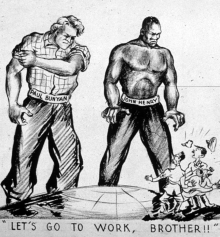 Let’s straighten out some of the terms used in the study of religion, the supernatural, and related topics. I know I’ve not always used the terms precisely, so this is a chance to make amends.
Let’s straighten out some of the terms used in the study of religion, the supernatural, and related topics. I know I’ve not always used the terms precisely, so this is a chance to make amends.
We’ll begin with the big category, folklore. This is the traditional knowledge or forms of expression of a culture passed on from person to person. Folklore can be material (quilts, traditional costumes, recipes, the hex signs on Amish barns, etc.), behavioral (customs such as throwing rice at a wedding, what constitutes good manners, superstitions, etc.), or traditional stories.
Traditional stories is itself a large category, containing music, anecdotes, ghost stories, parables, popular misconceptions, and other things you might not think of.
Now on to the kinds of traditional stories that are most interesting to apologetics. These terms can overlap quite a bit, so consider these definitions approximations. First, let’s consider stories seen as true (or plausibly so) by their hearers.
- Legends are grounded in history and can change over time. They can include miracles. Urban legends are a modern category of legends that don’t include miracles, are set in or near the present day, and take the form of a cautionary tale.
- Myths are sacred narratives that explain some aspect of reality (for example: the myth of Prometheus explains why we have fire and the Genesis creation myth explains where everything came from). Epic poems such as Beowulf and the Odyssey are one kind of myth.
The difference between legends and myths is that a legend is set in a more recent time and generally features human characters, while myths are set in the distant past and have supernatural characters. Some stories are mixtures of the two—the Iliad tells the story of a real city, and the characters include gods, humans with supernatural powers, and ordinary humans.
Lady Godiva, King Arthur, William Tell, and Atlantis are examples of legends—the stories have human characters and are set in a historic past. Myths include the stories of Hercules and Zeus, Hindu mythology, the Noah story, and the creation stories of dozens of cultures—they have gods as characters and are set in a distant or undefined past.
Let’s take a brief detour to look at a few relevant terms that are not part of the category of traditional stories.
- Religion starts with the sacred narratives of mythology and adds beliefs and practices. Myth and scripture are both sacred, but scripture is the writings themselves. Doctrine is codified teaching, and dogma is that mandatory subset of the doctrine that must be believed for one to be a member.
- Superstition is any belief that relies on a supernatural (instead of natural) cause like astrology, omens to predict the future, magic, or witchcraft. It can also be defined as the unfounded supernatural beliefs of the other guy’s religion (not your own, of course). Merriam-Webster defines it as “a belief or practice resulting from ignorance, fear of the unknown, trust in magic or chance, or a false conception of causation.”
Finally, let’s consider stories understood by their hearers to not be true.
- Fables have a particular kind of character: nonhumans such as animals, plants, inanimate objects, or forces of nature that have human-like qualities. Fables end with a moral.
- Fairy tales also have particular characters: fantasy characters such as fairies, goblins, and elves. Magic is also an element. There is no connection with historic time (it begins “Once upon a time …”).
- Parables are plausible stories with plausible characters (no talking rocks, no magic) that are not presented as true. Parables illustrate a moral or religious principle.
Photo credit: Wikimedia
Related posts:
- See all the definitions in the Cross Examined Glossary.
Related links:
- “Literary or Profane Legends,” New Advent.

Seems to me you left out a category—accurate history. Why don’t you give us a definition for that, as well as examples from the period before, Oh, say, 35 AD. Give us the data you used to determine it was accurate as well, please. Unless of course you think it was all myth and legend before YouTube, CNN and Wikipedia.
BTW, your definition of superstition, “any belief that relies on a supernatural (instead of natural) cause,” presumes there can be nothing which is beyond our natural abilities to discern physically, so you are begging the question on that definition. Your disqualifier about “the other guy’s religion” sounds like a rather backhanded slap than an actual variance in the allowable definition. If there is actually a supernatural entity, then belief in it is not superstition. It is confidence in a truth.
My focus was folklore and some of its many categories, not history. My examples of history before 35CE would, obviously, be the same as yours–the record of Julius Caesar, Alexander the Great, and so on.
Why not the miracles of Jesus of Nazareth? Obviously, those wouldn’t make my list of historical events because they’re all rejected by the historical consensus.
Is there anything beyond our natural abilities to discern? If we can discern it, doesn’t that make it natural?
None of these were definitions I pulled out of my own head; I got them from what I hoped were reliable sources. Seeing the other guy’s religion as superstition certainly rings true for me, but if you want to propose improvements, that’s great.
Thank you a lot for sharing this with all people you actually realize what
you are talking about! Bookmarked. Kindly additionally visit my
website =). We will have a hyperlink alternate contract among us